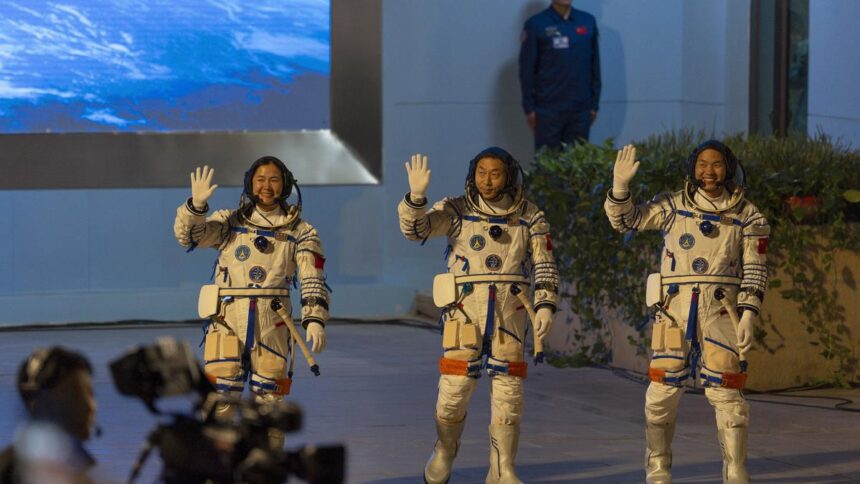Chinese Astronauts Return from Space Mission
Chinese astronauts Wang Haoze, Cai Xuzhe, and Song Lingdong returned to Earth on April 30 after a six-month stay on China’s space station. This marks a significant step in Beijing’s ambitious space program, which aims to become a major celestial power.
China has invested billions of dollars in its space program, driven by President Xi Jinping’s vision of achieving the "space dream." The country plans to send a crewed mission to the Moon by the end of the decade and eventually establish a base on the lunar surface.
The latest launch last week sent a trio of astronauts to the Tiangong space station, marking the beginning of the Shenzhou-20 mission. The astronauts, who took over from the Shenzhou-19 crew, landed in the northern Inner Mongolia region on Wednesday.
The Xinhua state news agency reported that the mission was a "complete success," with the astronauts in "good health." State broadcaster CCTV showed the landing capsule descending through the sky and landing in a cloud of brown desert dust. Teams of officials then rushed to open the golden craft and plant a national flag nearby.
The Shenzhou-19 crew had been working on the space station since October, where they carried out experiments and set a new record for the longest ever spacewalk. The mission was initially scheduled to return on Tuesday but was postponed due to bad weather at the Dongfeng landing site.
Wang, 35, was China’s only woman spaceflight engineer at the time of the launch. Commander Cai, a 48-year-old former air force pilot, previously served aboard Tiangong as part of the Shenzhou-14 mission in 2022. Song, a 34-year-old former air force pilot, completed the group of spacefarers popularly dubbed "taikonauts" in China.
The Shenzhou-20 crew, led by Chen Dong, 46, a former fighter pilot and veteran space explorer who became the first Chinese astronaut to clock up more than 200 cumulative days in orbit, is headed by Chen Zhongrui, 40, a former air force pilot, and Wang Jie, 35, a former space technology engineer.
During their six-month stint, the crew will carry out experiments in physics and life sciences and install protective equipment against space debris. For the first time, they will also bring aboard planarians, aquatic flatworms known for their regenerative abilities.
China’s space program is the third to put humans in orbit and has also landed robotic rovers on Mars and the Moon. Tiangong, named after the Chinese celestial palace, is its most impressive achievement. China has never been involved in the International Space Station due to opposition from the United States. Washington plans to return to the Moon in 2027, though the election of President Donald Trump brought uncertainty over the mission’s fate.
Reference : https://www.thehindu.com/sci-tech/science/chinas-shenzhou-19-astronauts-return-to-earth/article69509149.ece








